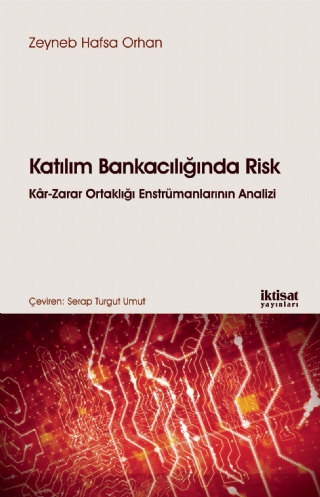Economy \ 1-1

In this book, which is the eighth book in the "What You Need to Know in 40 Questions" series of books that provide short, practical and qualified answers to the questions of the reader about the practices or institutions related to Islamic economics, the subject of interest is discussed around 40 questions from various aspects. One of the main issues of the universal message sent by Allah (c.c.) to humanity is the prohibition of interest/riba. Because, interest is a practice that brings with it many harms, vices and evils in terms of religion, morality, social and economic aspects. The book deals with such an important subject as a whole; It has covered a wide area from its history to its implementation and the systems and discourses formed around it.

In this book, which is the second book of the Pocket Books series, which consists of books on the basic institutions and issues of Islamic economics, the subject of morality is tried to be explained in a content that can be easily understood by people of all levels, rather than a theoretical depth. Morality is one of the most fundamental issues that exist in all human societies. All economic, social and cultural systems are built on this foundation. Because morality is the set of basic values and rules that make it possible to live together with the society, in mutual solidarity and trust, which directs the instinctive desires of the individual to appropriate and legitimate social channels. The work in your hand deals with the place and role of morality in human life, which can be handled in a multi-dimensional and multi-dimensional way, in the context of economy, which is one of the most important relationship networks surrounding people in today's world. In this respect, in the first part of the work, the role of morality in the experience of living together, its relationship with law and religion, the reasons for the differences in business life are discussed, in the second part, the role of morality in the conduct of economic life is discussed, and finally, the effects of the marketization and globalization of the economy on morality are discussed.
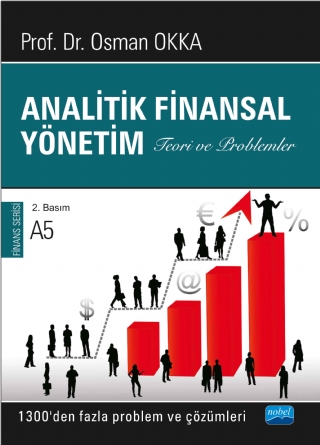
Although there are publications on verbal financial management in Turkey, there is a great deficiency in digital financial management. This study, which is prepared to compensate for this deficiency to some extent, includes more than 1,300 solved problems and tries to ensure that finance is experienced live in the company. Today, financial management education in our universities should be numerical, not verbal, as a requirement of the job. It is also clear that a financial education that is not pedagogically involved in company activities, cannot analyze and evaluate financial events, and is not effective in determining financial policies is not sufficient. The purpose of this book; It is to show the student and the reader how to solve simplified financial problems and to give sufficient financial knowledge on the relevant subject. While the theoretical information in the book was aimed to be at the basic level, it was thought to be at a very advanced level and the theoretical knowledge was concentrated in the book. The second purpose of the book is to prepare for the Financial Management Case Studies book. At the end of the book, the problems were emphasized and after the questions were solved, different orientation questions were asked for the student to test himself.
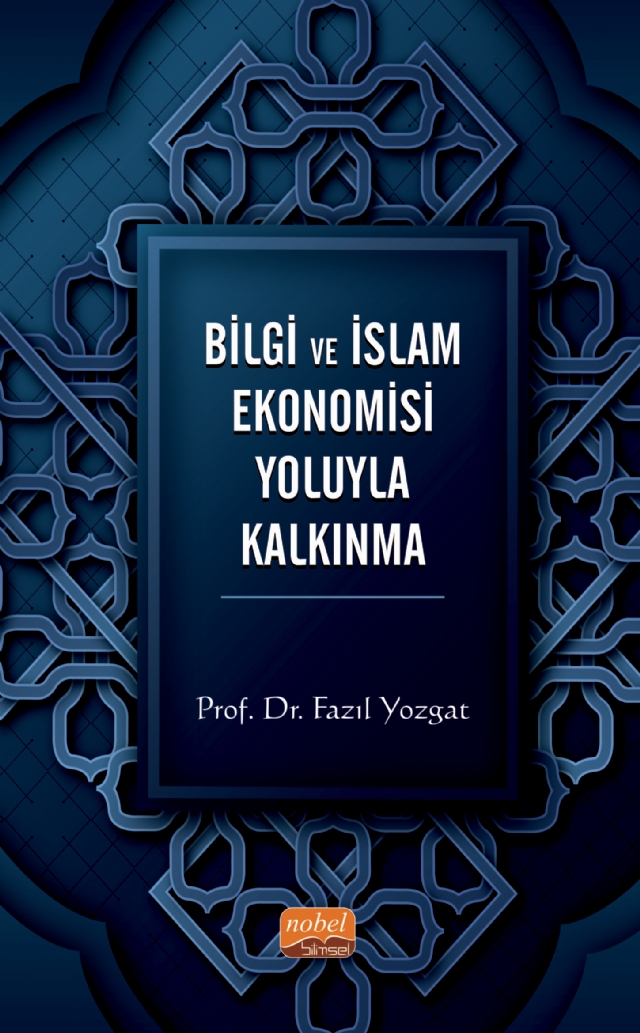
In this study, development through knowledge and Islamic economics is examined in a theoretical and practical context. In the words of Francis Bacon, “Knowledge is power”. The way to be strong in every field is through knowledge. The work of the Royal Society was one of the important factors in Britain's dominance in the world at the turn of the century. Despite the social and political turmoil, Académie Française did not break its system and led France to become an economic and social power. The German Academy of Sciences, the Italian Accademia dei Lincei and the Royal Swedish Academy of Sciences have played a similar role in their countries. The most important work that prepared the infrastructure for Japan to become what it is today is a six-volume report prepared by the Iwakura delegation as a result of examining the countries they have traveled to, especially the USA. For us, the dissolution of Encümen-i Daniş after 12 years, for an uncertain reason, is a serious breaking point. The proposals of movements such as the Young Turks, who were influenced by the West since the Tanzima, to change with political discourses rather than science and development, were not consistent in the ordinary flow of political and social life.
Again, in this study, the basic concepts related to Islamic economics are analyzed in an analytical framework. In the words of Cemil Meriç, "Every recipe is a falsification". The basic concepts of Islamic economics have been analyzed without distorting the meaning as much as possible. Because the basic terms related to economic life are universal and concern all Muslims. If Islamic countries cannot find a solution to their economic problems despite their natural wealth, there are some structural deficiencies. In this framework, evaluations were made about the efficient use of labor and the application of the methods applied by international organizations in its contribution to production in our country. With this work, it is aimed to contribute to the Islamic intellectual golden ring in order to "compete in charity" and "make the world prosperous" with the motto of "seeking the knowledge that is the believer's lost property" and "the hand that gives is superior to the hand that receives".
Again, in this study, the basic concepts related to Islamic economics are analyzed in an analytical framework. In the words of Cemil Meriç, "Every recipe is a falsification". The basic concepts of Islamic economics have been analyzed without distorting the meaning as much as possible. Because the basic terms related to economic life are universal and concern all Muslims. If Islamic countries cannot find a solution to their economic problems despite their natural wealth, there are some structural deficiencies. In this framework, evaluations were made about the efficient use of labor and the application of the methods applied by international organizations in its contribution to production in our country. With this work, it is aimed to contribute to the Islamic intellectual golden ring in order to "compete in charity" and "make the world prosperous" with the motto of "seeking the knowledge that is the believer's lost property" and "the hand that gives is superior to the hand that receives".

Growth is the most basic phenomenon that we encounter in all areas of life in the capitalist model. Because the model based on supply has indexed its sustainability to growth. In order to spread and sustain the capitalist codes of the system, societies are also organized with the motivation of growth and with rational or irrational codes according to the period. But this ideal, which the masses and societies are dragged after, is a cheap fiction and illusion. Because capitalism is a model of withholding. Growth is only the growth of the capitalist, and its benefits are denied to others. The treatise of utility reconsiders the theory of utility from the perspective of Islamic economics with its concrete (material) and intangible (spiritual) aspects. On the basis of production-consumption indivisibility, the author proposes a solution to the problem of the distribution of the produced income of capitalism with the principle of effort. The work, Hâce Yûsuf b. With the imagination that Ayyub al-Hamedânf placed on the theory of Rötbetü'l Hayat, he explains the economic structure of the utility dimensions ignored by capitalism with mathematical relations. While discussing the philosophical background that feeds the utility theory in the work, the details of the common set of fitra are examined. At the same time, while the financial intermediation paradigm is being questioned, determinations on the collective role of Islamic economic institutions are included.

This book, titled Contemporary Approaches in the Field of Economics, Finance and Management, consists of the studies presented online at the International Participated Economic Research and Financial Markets Congress (IERFM) held in Konya between 15-17 October 2020 and deemed appropriate to be published after the editorial review.
The book consists of 7 chapters in total and the chapters have been prepared by scholars studying in the fields of economics, finance and management, market professionals and those working in the financial media. The latest developments regarding the subject addressed in each section have been shared, discussed, evaluations have been made to be a source of motivation for new studies. Thus, it was tried to contribute to the literature by filling knowledge gap on the subject.
Similarly, in the future IERFM Congresses, it has been planned that the studies deemed appropriate after the editorial reviews will be published as book chapters. In this book, it is aimed to analyze the current developments in the field of economics, finance and business management in a scientific level. In this context, it is expected that the book will provide added value to the academic studies and people dealing with science.
The book consists of 7 chapters in total and the chapters have been prepared by scholars studying in the fields of economics, finance and management, market professionals and those working in the financial media. The latest developments regarding the subject addressed in each section have been shared, discussed, evaluations have been made to be a source of motivation for new studies. Thus, it was tried to contribute to the literature by filling knowledge gap on the subject.
Similarly, in the future IERFM Congresses, it has been planned that the studies deemed appropriate after the editorial reviews will be published as book chapters. In this book, it is aimed to analyze the current developments in the field of economics, finance and business management in a scientific level. In this context, it is expected that the book will provide added value to the academic studies and people dealing with science.

In this book, which is the seventh book in the Pocket Books series, which covers the basic institutions and issues of Islamic economics, the subject of environment and ecology has been tried to be explained in a content that can be easily understood by people of all levels, rather than a theoretical depth. Today, capitalism is largely abstracted from moral values. It sees the damages as human, global warming and environmental disasters. Islamic economics, which is shaped within the framework of the principles of the religion of Islam, rises as an alternative to these corrupt production relations based on exploiting human and nature. According to the religion of Islam, the vicegerent of Allah on earth is man. According to the human model defined by Islamic economics, which is shaped within the framework of Islamic principles, nature should be seen as a trust from the creator, all living and non-living beings should be respected, and economic activities with ethical values should be carried out, not production-consumption oriented. In this sense, the book approaches the subject of ecology and environment from the perspective of Islamic economics and offers solutions on the subject.
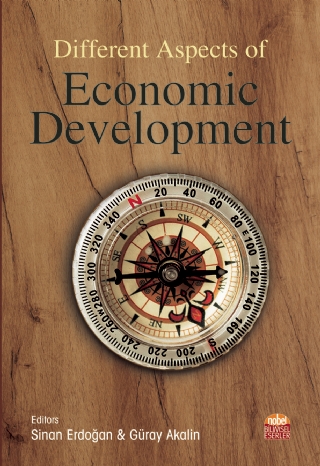
Economic development is a sophisticated process that covers economic, social, political, and cultural progress and focuses on raising human well-being. Therefore, it has many components such as economic growth, health, education, income distribution, institutional progress, financial development so forth. From this point of view, several contemporary issues in economic development have been investigated in this book. Within this regard, it aims to provide both empirical and theoretical contributions to the existing literature. Each chapter of the book has been written by scholars who are experts in their fields, and their findings provide significant information and empirical proofs for policymakers. Moreover, it may provide deep insights for graduate students and scholars studying economic development, and it contains information and analysis to be taught in postgraduate courses and to be used in postgraduate papers.
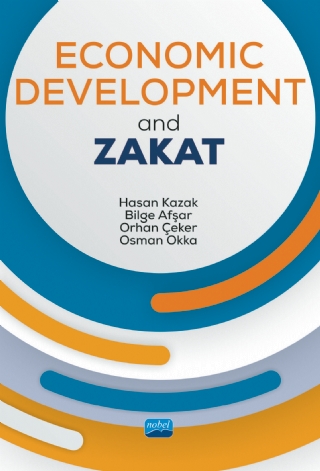
An integrated system, Islam consists of several subsystems. The economy has an important place in these sub-systems. In this respect, Islam also includes regulations on economic growth and development. Undoubtedly, the most important of these regulations is the zakat institution. Zakat was mentioned in many parts of Koran with the prayer, accepted as the pillar of religion in many places and an important message that zakat and prayer should not be separated was given.
The most known and prominent feature of the zakat institution is its contribution to the fair distribution of national income, which is an important indicator in terms of economic development. A lot of work has been written on this subject and this issue has been mentioned in almost every sermon of Islamic scholars. However, the zakat institution has much more significance and benefits in terms of economic growth and development process.
The main purpose of this study is to create a resource for the qualitative and quantitative studies that will be carried out, by revealing other contributions of zakat to economic growth and development, which are not in the foreground but are actually much more functional as well as its other well-known contribution to income distribution.
The most known and prominent feature of the zakat institution is its contribution to the fair distribution of national income, which is an important indicator in terms of economic development. A lot of work has been written on this subject and this issue has been mentioned in almost every sermon of Islamic scholars. However, the zakat institution has much more significance and benefits in terms of economic growth and development process.
The main purpose of this study is to create a resource for the qualitative and quantitative studies that will be carried out, by revealing other contributions of zakat to economic growth and development, which are not in the foreground but are actually much more functional as well as its other well-known contribution to income distribution.
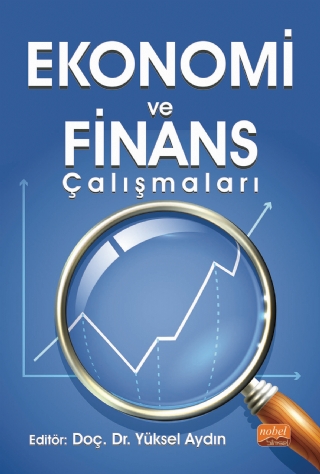
Evaluating the innovations provided by digital transformation in the economy and finance sector is one of the most important issues. Today, increasing economic relations between countries constitute the structure that develops the financial sector. It is seen that the various dynamics that occurred in different periods have a quality that will affect many countries, and that they have a slowing effect on economic and financial development from time to time. Understanding the place of global trends in economic and financial theory in this developing structure draws attention in terms of ensuring effectiveness in policy measures. In this context, current developments in the world economy and finance sector have been the main point of view in the preparation of this book. Our book, which includes theoretical and applied studies, consists of two main parts. In our book, which includes a total of 23 chapters, each chapter has been prepared by academics who are experts in their fields. It is aimed that this book will contribute to researchers and students working in the field of economics and finance.

Islamic economy/economics, which emerged as a concept in the 1930s, started to develop theoretically after the 1970s and became an academic field of study. This work presents the positions of the basic micro and macro issues of economics in this new field of study, both theoretically and
It is intended to demonstrate in practical terms. In this context, subjects such as methodology, political economy systems, state-market relations, fiscal and monetary policy, consumer and producer analysis, institutions are included. This book, which is structured to be used as an introductory one-semester course book in Islamic economics in terms of subject progression and segmentation, is also preferable for anyone interested in the subject because it does not have a heavy academic language. With the hope that it will contribute to the field as an original work written in Turkish, as well as related translation works published by İktisat Publishing until today...
It is intended to demonstrate in practical terms. In this context, subjects such as methodology, political economy systems, state-market relations, fiscal and monetary policy, consumer and producer analysis, institutions are included. This book, which is structured to be used as an introductory one-semester course book in Islamic economics in terms of subject progression and segmentation, is also preferable for anyone interested in the subject because it does not have a heavy academic language. With the hope that it will contribute to the field as an original work written in Turkish, as well as related translation works published by İktisat Publishing until today...

In this book, which is the eighth book in the Pocket Books series, which covers the basic institutions and issues of Islamic economics, the subject of utility is tried to be explained in a content that can be easily understood by people of all levels, rather than a theoretical depth. The book examines the meaning, role and importance of the concept of utility in modern economics and Islamic economic theory, taking into account the evolution of the concept over time. Accordingly, the book is organized into four parts. In the first part; The approach in which utility is defined as the ability of goods to meet human needs is discussed. In the second part; The approach in which benefit is defined as the satisfaction, pleasure and happiness obtained from the consumption of goods and services, that is, the "cardinal approach to benefit" has been examined. In the third part; The modern approach to the concept of utility, the "ordinate to utility" approach, in which utility is included in the analysis as a way to rank consumer preferences, is explained. In the fourth chapter, the framework of the concept of utility in Islamic economics is drawn and its differences from mainstream economics are explained.
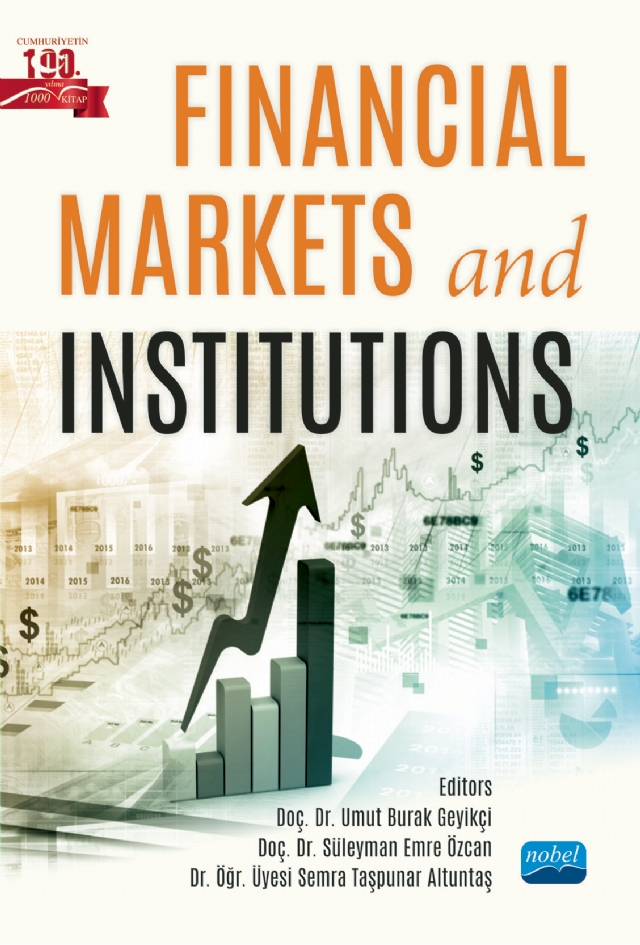
This book covers all topics related to financial markets. Financial Markets and Institutions offers a distinct analysis of the risks faced by investors and savers interacting through financial institutions and financial markets. It also introduces strategies that can be adopted to control and manage risks. Each chapter is further enriched by providing topical coverage in Turkey context, followed by questions and mini-cases at selected chapters. Each chapter first gives an overiew and identifies learning objectives. Furthermore, we make abundant use of graphs and tables to give relevant people a comprehensive overview of the Turkey financial system.
This textbook's strong market focus and superior pedagogy are combined with a complete digital solution to help students achieve higher outcomes in the course. Combining theory, data and policy, this successful book examines and explains financial markets, financial infrastructures, financial institutions and the challenges of financial supervision and competition policy.
This textbook's strong market focus and superior pedagogy are combined with a complete digital solution to help students achieve higher outcomes in the course. Combining theory, data and policy, this successful book examines and explains financial markets, financial infrastructures, financial institutions and the challenges of financial supervision and competition policy.
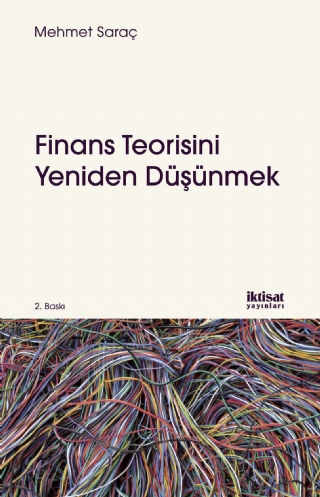
While the theoretical questioning of finance, which is a relatively young specific field among the sciences, is actually being questioned, the world view and human perception on which neoclassical economics is based, and perhaps beyond that, neoclassical economics is also questioned. While doing this, the source of knowledge, the methodology of science, how the Enlightenment process gave direction to these issues and the future of the concept of scientific knowledge are also included in the discussion to a certain extent.
Today, the most questionable point of conventional economics and the finance discipline derived from this understanding is that the epistemology of the economics and finance understanding and the assumptions on which it is based do not fully grasp the reality of human and existence. For this reason, post-modern humanity struggles with crises, cannot establish a sustainable economic system and is deprived of a fair distribution of wealth. This book deals with the debates, critical views, new trends and new paradigm searches, which have become more evident especially after the crises, regarding the theory of finance as a scientific field of study and the global financial system in terms of practice.
Today, the most questionable point of conventional economics and the finance discipline derived from this understanding is that the epistemology of the economics and finance understanding and the assumptions on which it is based do not fully grasp the reality of human and existence. For this reason, post-modern humanity struggles with crises, cannot establish a sustainable economic system and is deprived of a fair distribution of wealth. This book deals with the debates, critical views, new trends and new paradigm searches, which have become more evident especially after the crises, regarding the theory of finance as a scientific field of study and the global financial system in terms of practice.
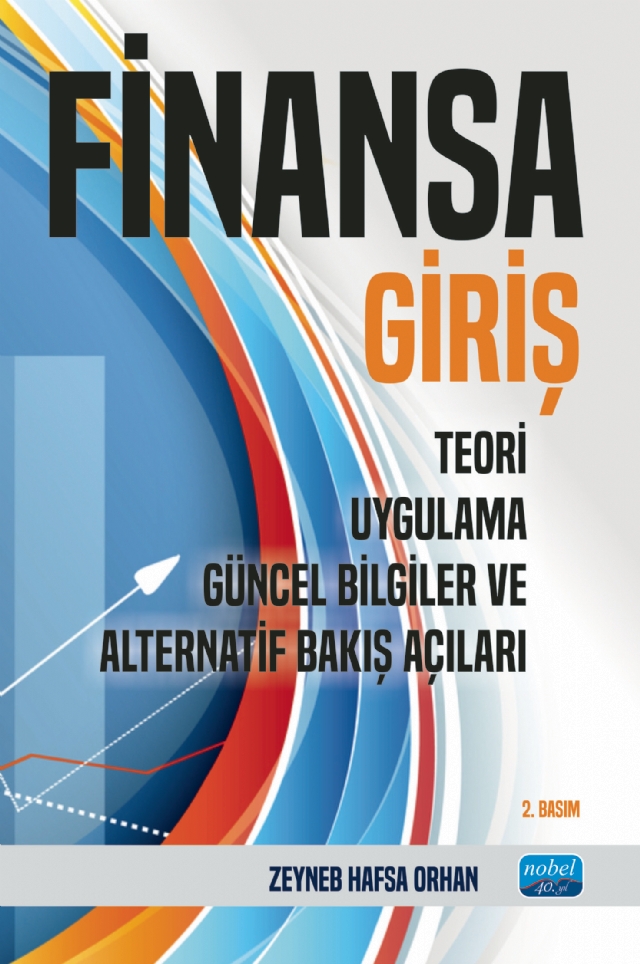
In this book, in which the topics covered in the first part of the voluminous financial management books are collected separately under the title of Introduction to Finance, the basic theoretical information about finance is tried to be conveyed in a plain language. In addition, examples of practice based on theories, up-to-date information from the world and Turkey on the subject, and additional information from alternative perspectives such as participation finance and behavioral finance are shared. As such, this book has been prepared in such a way that it is suitable for reading like a one-semester textbook and can appeal to people of all levels who want to gain introductory information about finance.
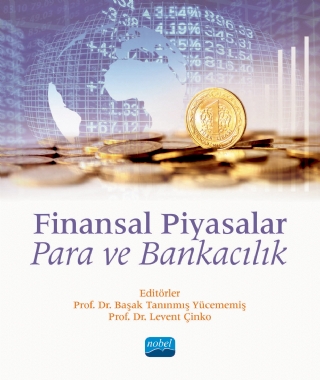
Financial markets, money and banking are among the topics that directly affect our daily life, even in it and arousing curiosity. Because what is learned in this field not only allows the understanding of different views on the execution of economic policy, which is the subject of discussions in the political arena, but also helps a clearer understanding of the economic and financial concepts that are frequently heard in the media. All the topics in this book, which is prepared for the relationship between financial markets, money and banking, are handled with a unifying method, and an analysis systematic in an economic and financial perspective is tried to be developed for the readers.
In this book; in addition to the structure and functioning of the financial markets that make up the financial system, financial institutions and instruments are discussed, the concept of money and its policies are based on theoretical foundations, the place of money and its policies in the financial system is examined, the central bank monetary policy practices are mentioned and the stability of the financial system is emphasized. In addition to these, the theoretical infrastructure related to banking in the financial system has been examined, the development, functions and international activities of banks, which are the most important actors of the system, are discussed, and the activities for the regulation and supervision of the system are examined. These topics in the book reveal the development and change experienced both in the countries of the world and in Turkey.
With the information they will acquire in this book, the readers will have the opportunity to approach and examine the subject with a different perspective and way of thinking.
In this book; in addition to the structure and functioning of the financial markets that make up the financial system, financial institutions and instruments are discussed, the concept of money and its policies are based on theoretical foundations, the place of money and its policies in the financial system is examined, the central bank monetary policy practices are mentioned and the stability of the financial system is emphasized. In addition to these, the theoretical infrastructure related to banking in the financial system has been examined, the development, functions and international activities of banks, which are the most important actors of the system, are discussed, and the activities for the regulation and supervision of the system are examined. These topics in the book reveal the development and change experienced both in the countries of the world and in Turkey.
With the information they will acquire in this book, the readers will have the opportunity to approach and examine the subject with a different perspective and way of thinking.
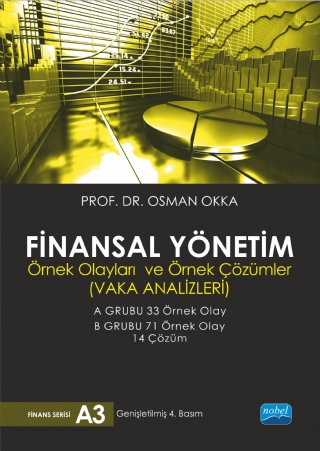
The first edition in 2005, the second in 2009, the third in 2013, and now the fourth edition in 2018, "Financial Management Case Studies and Case Studies" has been prepared for use in undergraduate, graduate and doctoral programs at our universities. The number of cases, which was 50 in the first edition, 62 in the second edition, and 71 in the third edition, was arranged over 104 cases, including 33 cases in undergraduate level, 71 in group B at graduate and doctorate level in the fourth edition, and also 71 group B case studies (cases) were updated.
In order to understand the problems of the financial manager and the role of finance theory correctly and to be able to make accurate financial decisions about the company in today's world dominated by extreme competition and high capital costs, our students and readers should closely see financial management problems taken from real life and turned into case studies and They need to find solutions to these problems. According to our research, students perceive, formulate, prepare for a solution, take the right decision by solving, and have difficulty in risk management, a financial problem they encounter in real life, starting from the textbooks or small financial problems in the books. For this reason, these case studies are; It is prepared for our readers to see themselves in the virtual environment of the company, to penetrate deeply into financial management problems, to develop alternative solutions and to improve their ability to make the right decision, that is, it acts as a finance simulator for financiers.
In order to understand the problems of the financial manager and the role of finance theory correctly and to be able to make accurate financial decisions about the company in today's world dominated by extreme competition and high capital costs, our students and readers should closely see financial management problems taken from real life and turned into case studies and They need to find solutions to these problems. According to our research, students perceive, formulate, prepare for a solution, take the right decision by solving, and have difficulty in risk management, a financial problem they encounter in real life, starting from the textbooks or small financial problems in the books. For this reason, these case studies are; It is prepared for our readers to see themselves in the virtual environment of the company, to penetrate deeply into financial management problems, to develop alternative solutions and to improve their ability to make the right decision, that is, it acts as a finance simulator for financiers.
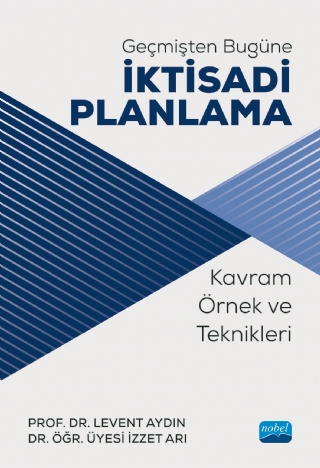
Since the beginning of the 20th century, there has been a need for planning in development economics on issues such as improving the level of development of countries, using resources more effectively, increasing population with changing technology and transforming economies according to differentiated demand. Economic planning is one of the main elements that ensure development with measurable, reportable and verifiable indicators by using planning tools in accordance with the vision, strategy, goals and targets determined by the countries at the macro scale. At the same time, economic planning and economic programs are an important approach that enables rational decisions in the economy in a time perspective.
The book reveals the necessity of economic planning, its basic features, conceptual framework and economic planning techniques with examples. This book, where researchers, academicians, policy makers and decision makers, experts and students can access basic information about economic planning, was written by two academicians who are experts in their fields. In the book, industrial plans and the development of development plans since the first years of the Republic in Turkey are presented from a sectoral point of view. In addition, the Input-Output Method, which forms the core of the General Equilibrium Models in the economy, is also included in the planning techniques section in detail. In addition, decision-making tools in project evaluation, which is complementary to the Plan-Program-Project hierarchy, are presented in detail with examples.
The book reveals the necessity of economic planning, its basic features, conceptual framework and economic planning techniques with examples. This book, where researchers, academicians, policy makers and decision makers, experts and students can access basic information about economic planning, was written by two academicians who are experts in their fields. In the book, industrial plans and the development of development plans since the first years of the Republic in Turkey are presented from a sectoral point of view. In addition, the Input-Output Method, which forms the core of the General Equilibrium Models in the economy, is also included in the planning techniques section in detail. In addition, decision-making tools in project evaluation, which is complementary to the Plan-Program-Project hierarchy, are presented in detail with examples.
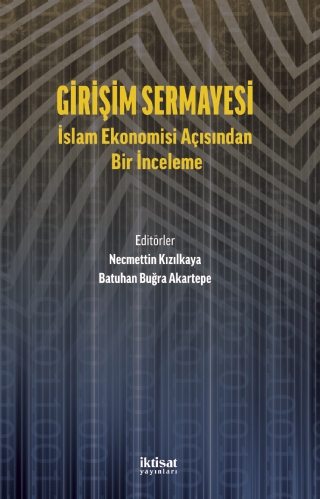
There have been people who are creative and have new ideas throughout history. These ideas led to the development of alternative models outside of the ongoing economic habits and opened the door to innovations.
Today, many innovations, especially in the field of technology, emerge as a result of the maturation of such ideas. Venture/venture capital is an important financial instrument in this respect, which refers to being a partner in these initiatives in order to meet the funding needs of individuals and companies with new ideas. It is an important feature of this partnership that one party takes the risk and aims to earn long-term returns by putting forth the capital of the other party and the creative thinking of the other party. In this respect, venture capital is an alternative model different from classical financing models. The profit-loss-based partnership structure in venture capital is suitable for the objectives that Islamic Economics wants to achieve. For this reason, it is an important investment tool that public and private institutions, universities and companies can apply, especially participation banks. This book in your hand examines the history, current situation, legal structure, economic opportunities, tax and accounting dimensions of venture capital. In this respect, it aims to fill an important gap in this issue, which has been neglected in terms of both theory and practice.
Today, many innovations, especially in the field of technology, emerge as a result of the maturation of such ideas. Venture/venture capital is an important financial instrument in this respect, which refers to being a partner in these initiatives in order to meet the funding needs of individuals and companies with new ideas. It is an important feature of this partnership that one party takes the risk and aims to earn long-term returns by putting forth the capital of the other party and the creative thinking of the other party. In this respect, venture capital is an alternative model different from classical financing models. The profit-loss-based partnership structure in venture capital is suitable for the objectives that Islamic Economics wants to achieve. For this reason, it is an important investment tool that public and private institutions, universities and companies can apply, especially participation banks. This book in your hand examines the history, current situation, legal structure, economic opportunities, tax and accounting dimensions of venture capital. In this respect, it aims to fill an important gap in this issue, which has been neglected in terms of both theory and practice.
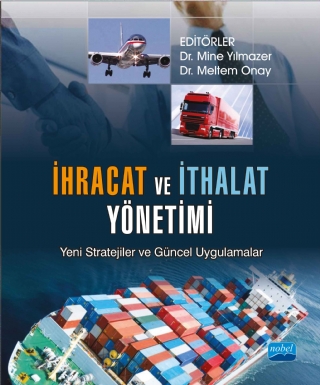
“This valuable publication, which analyzes Turkey's foreign trade structure from a modern point of view, with a wide range of information from the historical evolution of foreign trade and current legislation applications to foreign trade processes, this valuable publication is devoted to those working in this field at all levels, academics and those operating in the private sector/ It is a guide for the professionals who will show it.
Unlike many publications in the field of foreign trade, the book includes interviews where representatives from various sectors of the business world share their experiences. I believe that these interviews, where success stories are told, will make a great contribution to those who have just taken or will take a new step into the business world.
This publication, created in the triangle of public-private sector-university, has been a very valuable study that provides answers from A to Z to questions in the field of foreign trade. I congratulate everyone involved and wish them continued success.”
Adnan Yıldırım (Deputy Minister of Economy)
•••
The point reached in our country, which aims to reach an ambitious export volume of 500 billion dollars from the export-led growth model in the 1980s, is one of the biggest efforts for our development.
Increasing the number of our entrepreneurs who produce and export what they produce and earn foreign currency to the country by using the blessings offered by technology in the most effective way has become more important than yesterday in today's competitive environment.
For this reason, I believe that this publication, prepared by different academics and experts, is a guide in terms of accurate information and using the right resources.
I congratulate everyone who contributed to this valuable publication, with the hope that it will achieve remarkable success in increasing the volume of foreign trade, which is one of our strategic goals.
Ender Yorgancılar (EBSO Chairman of the Board)
•••
The importance of foreign trade is increasing day by day in our globalizing world. I find it very important to share successful examples, transfer past experiences to young entrepreneurs, and thus encourage them.
The work you have created is a very valuable resource in this respect. In particular, interviews with people who have achieved success in Turkish conditions are instructive.
Such publications; It supports production, trade and, in short, life. I congratulate you and everyone involved for your valuable contributions.
Sabri Ünlütürk (Head of Aegean Exporters' Associations Coordinator)
Unlike many publications in the field of foreign trade, the book includes interviews where representatives from various sectors of the business world share their experiences. I believe that these interviews, where success stories are told, will make a great contribution to those who have just taken or will take a new step into the business world.
This publication, created in the triangle of public-private sector-university, has been a very valuable study that provides answers from A to Z to questions in the field of foreign trade. I congratulate everyone involved and wish them continued success.”
Adnan Yıldırım (Deputy Minister of Economy)
•••
The point reached in our country, which aims to reach an ambitious export volume of 500 billion dollars from the export-led growth model in the 1980s, is one of the biggest efforts for our development.
Increasing the number of our entrepreneurs who produce and export what they produce and earn foreign currency to the country by using the blessings offered by technology in the most effective way has become more important than yesterday in today's competitive environment.
For this reason, I believe that this publication, prepared by different academics and experts, is a guide in terms of accurate information and using the right resources.
I congratulate everyone who contributed to this valuable publication, with the hope that it will achieve remarkable success in increasing the volume of foreign trade, which is one of our strategic goals.
Ender Yorgancılar (EBSO Chairman of the Board)
•••
The importance of foreign trade is increasing day by day in our globalizing world. I find it very important to share successful examples, transfer past experiences to young entrepreneurs, and thus encourage them.
The work you have created is a very valuable resource in this respect. In particular, interviews with people who have achieved success in Turkish conditions are instructive.
Such publications; It supports production, trade and, in short, life. I congratulate you and everyone involved for your valuable contributions.
Sabri Ünlütürk (Head of Aegean Exporters' Associations Coordinator)

When we look at the developments in the philosophy of science in the last hundred and fifty years, it is seen that the method of natural sciences is dominant in the method of social sciences. The separation of economics from philosophy, which is thought to progress by using advanced mathematics and technique, has been criticized by twentieth century economists and other social scientists, and these criticisms have led to different epistemological and ontological searches in social sciences from natural sciences. Especially with the development of ontological hermeneutics, the research subject and content of economics has started to be questioned again through the mutual relationship between the individual and society.
In this book, which is prepared for readers who are interested in economics and other social sciences as well as the philosophy of science, the nature of the mutual dynamic relationship between the individual and society as the main research topic of economics has been opened to discussion in different periods and thinkers, thus trying to bring an ontological dimension to the mainstream economy. A critical perspective is presented to the methodology of economics.
In this book, which is prepared for readers who are interested in economics and other social sciences as well as the philosophy of science, the nature of the mutual dynamic relationship between the individual and society as the main research topic of economics has been opened to discussion in different periods and thinkers, thus trying to bring an ontological dimension to the mainstream economy. A critical perspective is presented to the methodology of economics.

This book has been prepared to support the writing activities of researchers and academics who want to look at economic developments from the perspective of sociology, and also to meet the learning needs of relevant students. In this sense, in addition to the scope of the previous limited number of Economic Sociology textbooks, the subject of capitalism, entrepreneurship and the causes of underdevelopment has been added to the agenda of the book.

It is difficult to understand people and society… It is even more difficult to understand the relationships between people, society and economy… Because…
• On the one hand, the irresistible attraction of the relations established with strong ties, on the other hand, the visionaryness of the relations based on innovation with weak ties…
• On the one hand, those who do not change the old for anything, those who are crushed under 'creative destruction', on the other hand, those who replace the old with the new, those who see technology as superior to humans, and those who have a heart like a machine...
• On the one hand, those who do not want to be put in the 'iron cage' of capitalism, on the other hand, the petrified hearts who think that unlimited power is power…
• On the one hand, those who act with the understanding of 'a bite and a cardigan', on the other hand, the pretentious people who use this understanding as an excuse and prevent themselves from working and turn idleness into a philosophy of life...
• On the one hand, those who take their bread out of stone, on the other hand, those who consume themselves as they consume, those who cannot have anything because they have everything...
• On the one hand, those who create capital for themselves from mutual trust and culture, on the other hand, those who acquire wealth, property and money for themselves.
• On the one hand, potlatch culture wins as it loses, on the other hand, selfish and self-seeking people who seek ways to gain more as capitalism gains.
• Those who are stuck in understatement on the one hand, and those who do not give up on excess on the other...
• Longing for local culture on the one hand, admiration for the global on the other...
• On the one hand, those who have the morality of submissiveness, and on the other hand, those who do not give up the morality of rebellion…
• On the one hand, “Our society rots without our virtues.” said Socrates, on the other hand, “Our society cannot develop without our vices.” said Mandeville…
• Those who are lost in cultural depths on the one hand, and those who lose their culture to civilization on the other.
• On the one hand, those who live with the American dream, on the other hand, those whose worlds turn into a nightmare...
• On the one hand, the 'knowledgeable' person of Neo-Classical economics, on the other hand, the person who cannot get rid of their cognitive biases…
• On the one hand, those who always sing the same refrain, on the other hand, entrepreneurs pushing the limits of innovation...
• Those who act as if they will never die on one side and will die tomorrow on the other…
Sociology of Economics aims at the journey of finding the 'economics in life', not the 'life in economics'. For this purpose, by making use of the views of different thinkers from Adam Smith to Karl Marx, from Max Weber to Emile Durkheim, from Werner Sombart to Joseph Schumpeter, from Karl Polanyi to Mark Granovetter and Pierre Bourdieu, the lost spirit in economics and society ; He tries to find real economics by examining the narcissist and hedonist approaches of postmodern consumer culture and the social and economic relations created by global capitalism. This book is, “First there was people, not economics.” Based on its motto, it tries to understand and make sense of the economic processes from the most primitive ages to the present day. Now is the time to question more the economic approaches that isolate people and society.
• On the one hand, the irresistible attraction of the relations established with strong ties, on the other hand, the visionaryness of the relations based on innovation with weak ties…
• On the one hand, those who do not change the old for anything, those who are crushed under 'creative destruction', on the other hand, those who replace the old with the new, those who see technology as superior to humans, and those who have a heart like a machine...
• On the one hand, those who do not want to be put in the 'iron cage' of capitalism, on the other hand, the petrified hearts who think that unlimited power is power…
• On the one hand, those who act with the understanding of 'a bite and a cardigan', on the other hand, the pretentious people who use this understanding as an excuse and prevent themselves from working and turn idleness into a philosophy of life...
• On the one hand, those who take their bread out of stone, on the other hand, those who consume themselves as they consume, those who cannot have anything because they have everything...
• On the one hand, those who create capital for themselves from mutual trust and culture, on the other hand, those who acquire wealth, property and money for themselves.
• On the one hand, potlatch culture wins as it loses, on the other hand, selfish and self-seeking people who seek ways to gain more as capitalism gains.
• Those who are stuck in understatement on the one hand, and those who do not give up on excess on the other...
• Longing for local culture on the one hand, admiration for the global on the other...
• On the one hand, those who have the morality of submissiveness, and on the other hand, those who do not give up the morality of rebellion…
• On the one hand, “Our society rots without our virtues.” said Socrates, on the other hand, “Our society cannot develop without our vices.” said Mandeville…
• Those who are lost in cultural depths on the one hand, and those who lose their culture to civilization on the other.
• On the one hand, those who live with the American dream, on the other hand, those whose worlds turn into a nightmare...
• On the one hand, the 'knowledgeable' person of Neo-Classical economics, on the other hand, the person who cannot get rid of their cognitive biases…
• On the one hand, those who always sing the same refrain, on the other hand, entrepreneurs pushing the limits of innovation...
• Those who act as if they will never die on one side and will die tomorrow on the other…
Sociology of Economics aims at the journey of finding the 'economics in life', not the 'life in economics'. For this purpose, by making use of the views of different thinkers from Adam Smith to Karl Marx, from Max Weber to Emile Durkheim, from Werner Sombart to Joseph Schumpeter, from Karl Polanyi to Mark Granovetter and Pierre Bourdieu, the lost spirit in economics and society ; He tries to find real economics by examining the narcissist and hedonist approaches of postmodern consumer culture and the social and economic relations created by global capitalism. This book is, “First there was people, not economics.” Based on its motto, it tries to understand and make sense of the economic processes from the most primitive ages to the present day. Now is the time to question more the economic approaches that isolate people and society.

The science of economics is closely related to the fields of finance and banking in terms of dealing with the optimum distribution of resources, and the regions where their circles intersect are expanding day by day following the global crises. In these discussed subjects, it has been tried to see the big picture, sometimes starting from small pieces. Trees were analyzed in detail, and application experiences were shared with readers. Sometimes, starting from a large piece, it was traveled to small pieces. It has progressed in the way of speaking to the reader whenever necessary, but meticulous attention has been paid to supporting comments and thoughts with scientific reality and resources. The book begins with basic macroeconomic issues such as production, consumption, investment, foreign trade and inflation it is complemented by various comments and assessments on monetary economics, central banking, finance and banking. This book contains many topics that appeal to university students, those who work in business life and those who want to improve themselves in these areas.

Do people always act rationally when making economic decisions? Are the balances in economic life best established spontaneously? Does economic development always increase welfare and happiness? Why do people make systematic mistakes when they have unlimited billions of experiences? How influential are our cognitive biases on our decisions? Why are those who know a lot wrong? Why does our body begin to believe what our brain believes after a while? Why do we give different answers and irrational responses to different questions, according to the way they are presented? How happy is it to consume in a postmodern world where needs turn into wants?
Are there things money can't buy? Is there happiness with money? Is it possible for Mesut from Mesudiye to be happy in today's postmodern world? What message does Agent Smith give to a person who is immersed in the rational and linear world? In what way do religious and moral values affect economic life in a society where most things are judged by market conditions? Why is the blood given in return for less quality and why is there more disease in this blood? Is it possible to explain the unreasonable enthusiasm and excitement that moves people even in the most negative moments with rational factors? Does two and two always make four in social and economic life? Longer and longer questions and answers always hidden somewhere...
Rationality and Irrationality in Economics opens the doors of a happy social and economic life. It gives tips on living in a balanced and measured way between a rational and irrational world. He's trying to find the real man and economics that gets rid of his cognitive biases. It reminds us once again that money cannot buy everything and that man is not a machine. It is time to question the traditional paradigm more in order to be happier in a postmodern world where there are serious disconnects between economics and morality.
Are there things money can't buy? Is there happiness with money? Is it possible for Mesut from Mesudiye to be happy in today's postmodern world? What message does Agent Smith give to a person who is immersed in the rational and linear world? In what way do religious and moral values affect economic life in a society where most things are judged by market conditions? Why is the blood given in return for less quality and why is there more disease in this blood? Is it possible to explain the unreasonable enthusiasm and excitement that moves people even in the most negative moments with rational factors? Does two and two always make four in social and economic life? Longer and longer questions and answers always hidden somewhere...
Rationality and Irrationality in Economics opens the doors of a happy social and economic life. It gives tips on living in a balanced and measured way between a rational and irrational world. He's trying to find the real man and economics that gets rid of his cognitive biases. It reminds us once again that money cannot buy everything and that man is not a machine. It is time to question the traditional paradigm more in order to be happier in a postmodern world where there are serious disconnects between economics and morality.
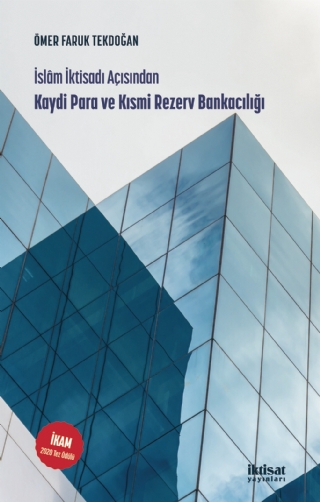
The partial reserve system, which we can call the basis of modern finance, has been the subject of discussion from past to present due to its weak structure, the role it played in economic instability and the problems it created. This interest-based system, which ensures that most of the money supply is dematerialized, has led to a macro-ribâ system that envelops economic life. The full reserve system, which was developed as an alternative to this system, could not find its place in practice. From the point of view of Islamic economics, the fact that the current system is riba-oriented and causes an unfair distribution of resources has necessitated the evaluation of the alternatives put forward from this perspective. The fractional reserve system operates based on confidence that commercial banks and central banks will provide sufficient liquidity when needed, and thus in essence it is prone to financial crises.
is weak and fragile. From this perspective in the book, the problems that are claimed to arise in economies with the discovery of fractional reserve banking are examined, the applicability of full reserve banking and how sufficient it is for a solution are examined, and the suitability and drawbacks of both systems in terms of Islamic economics are discussed. In addition, the effect of both banking systems on economic stability was compared using an agent-based simulation model.
is weak and fragile. From this perspective in the book, the problems that are claimed to arise in economies with the discovery of fractional reserve banking are examined, the applicability of full reserve banking and how sufficient it is for a solution are examined, and the suitability and drawbacks of both systems in terms of Islamic economics are discussed. In addition, the effect of both banking systems on economic stability was compared using an agent-based simulation model.
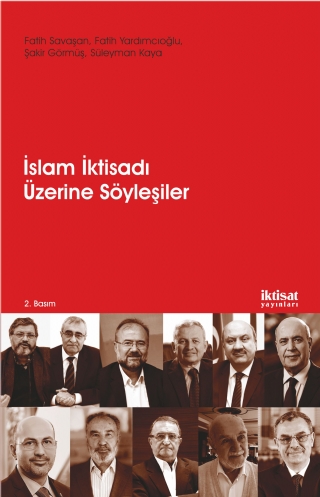
Many issues such as what the economic view of Islam is, whether it offers an economic system, what solutions it provides to people's needs, and through which institutions historically Muslims carry out their economic activities have been discussed by different segments for a long time and still continue to be discussed. Not only theoretical efforts, but also many practical efforts have been put forward and institutions have been established. Sometimes the practice side, led by Islamic banks, directed other theoretical studies, and sometimes the theory tried to influence the practice. On the other hand, with the growth of Islamic finance, regulatory authorities have inevitably been included in this ecosystem. In the end, many stakeholders, interconnected or not, ponder on Islamic economics and finance and contribute to keeping this field on the agenda.
Studies in the field of Islamic economics and finance have increased for Turkey, especially after the 1980s. Islamic lawyers, employees in the Islamic finance sector, regulatory agencies, academics and many more contribute to the field. Among them, some names played leading roles in their own fields and have been influential in the reaching of Islamic economics and finance to a much wider audience today. This book consists of interviews with professors who have worked in this field for many years, industry representatives and regulators operating in the field of Islamic finance.
Studies in the field of Islamic economics and finance have increased for Turkey, especially after the 1980s. Islamic lawyers, employees in the Islamic finance sector, regulatory agencies, academics and many more contribute to the field. Among them, some names played leading roles in their own fields and have been influential in the reaching of Islamic economics and finance to a much wider audience today. This book consists of interviews with professors who have worked in this field for many years, industry representatives and regulators operating in the field of Islamic finance.
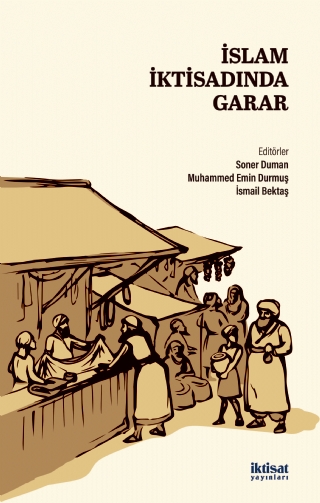
The most basic principles that Islam observes in human relations; observance of justice, prevention of injustice, ensuring social stability, entrusting the trust to those who are competent, open and transparent relations between people, preventing transactions and dispositions that may lead to conflicts between people. These principles also guided the instructions of Islam regarding commercial relations between people. In this context, tortious acts such as theft and extortion are prohibited, as well as interest, verbal or de facto cheating that leads to the exploitation of one party in contracts.
Garar, which is the subject of this book, is also prohibited because it causes commercial relations between people to be carried out in an open and transparent manner and cause conflicts and fights between people. The book consists of the papers presented in the workshop named "Garar in Classical Fiqh and Its Effect on Today's Economic Transactions", which was organized with the aim of addressing many aspects of the ban on garar, which was discussed in the classical fiqh literature and also encountered in modern economic transactions, by the participants, which were developed and converted into articles. This book, in which different authors deal with the prohibition of garar in Islamic fiqh from conceptual, intellectual and methodological perspectives, has been brought together in order to establish a solid link between our classical fiqh heritage and today's economic affairs.
Garar, which is the subject of this book, is also prohibited because it causes commercial relations between people to be carried out in an open and transparent manner and cause conflicts and fights between people. The book consists of the papers presented in the workshop named "Garar in Classical Fiqh and Its Effect on Today's Economic Transactions", which was organized with the aim of addressing many aspects of the ban on garar, which was discussed in the classical fiqh literature and also encountered in modern economic transactions, by the participants, which were developed and converted into articles. This book, in which different authors deal with the prohibition of garar in Islamic fiqh from conceptual, intellectual and methodological perspectives, has been brought together in order to establish a solid link between our classical fiqh heritage and today's economic affairs.

Murabaha contract is one of the most applied and discussed transactions in the interest-free financial system. In the process that has been going on since the 1970s, when interest-free banking began, the subject of murabaha, which has been in the field of interest of many scientific disciplines, especially fiqh and economics, has been an issue that has attracted the attention of the academic community as well as being important for the real sector. The main purpose of this study is to deal with the historical development of such a contract, to follow the stages it went through and to examine the debates about the problematic points it has.
Murabaha, which is known as "production support" and "corporate and individual financing support" in practice in Turkey, is a larger-scale and most widely used transaction today, has common issues with other investment-financing models, as well as many different The fact that it contains a problem point, is the most discussed transaction in the modern period, and shows how a classical contract was modernized are the factors that make this contract important. Murabaha fiqh, economic, social, etc. This study, which aims to address various aspects with a critical and holistic perspective and to reveal the course of reasoning and judgment-making activities in modern Islamic economics problems based on the existing literature, is a candidate to fill an important gap in the literature.
Murabaha, which is known as "production support" and "corporate and individual financing support" in practice in Turkey, is a larger-scale and most widely used transaction today, has common issues with other investment-financing models, as well as many different The fact that it contains a problem point, is the most discussed transaction in the modern period, and shows how a classical contract was modernized are the factors that make this contract important. Murabaha fiqh, economic, social, etc. This study, which aims to address various aspects with a critical and holistic perspective and to reveal the course of reasoning and judgment-making activities in modern Islamic economics problems based on the existing literature, is a candidate to fill an important gap in the literature.

In the face of Europe's industrialization revolutions and its formation as developed economies, the Islamic world's inability to fully fulfill its growth and development steps has led to a misconception that Islam hinders development or progress for years. This perception has been expressed from time to time by some circles with good intentions or bad intentions. Is it really so? Does Islam have a religious understanding that only has an aspect towards the hereafter and is completely isolated from worldly life? How should the chapters in the Qur'an and hadiths that describe the dangers of wealth be understood? Does Islam have a relationship with capitalism and socialism? Can a Muslim be rich? Are there any rules for being rich and wealthy? What should be the balance between spending and hedonism? The fact that all these questions are often wrongly answered and misinterpreted by both the Islamic and non-Islamic worlds is an indication that the issue is not fully understood. Although this misunderstanding is considered reasonable by those who are far from the Islamic world, it is very sad that it is misunderstood and interpreted by the Islamic world.
In this study, the subject is evaluated from the perspective of Islam by considering the assumptions and approaches in Max Weber's work, which deals with the relationship between Protestant ethic and capitalism, and which is very popular. Can relationships similar to those established by Max Weber between capitalism and Protestant ethics be valid for the religion of Islam, or can similarities be drawn? In this study, the real Islamic economic system has been tried to be revealed by considering the subject in terms of these relations.
In this study, the subject is evaluated from the perspective of Islam by considering the assumptions and approaches in Max Weber's work, which deals with the relationship between Protestant ethic and capitalism, and which is very popular. Can relationships similar to those established by Max Weber between capitalism and Protestant ethics be valid for the religion of Islam, or can similarities be drawn? In this study, the real Islamic economic system has been tried to be revealed by considering the subject in terms of these relations.
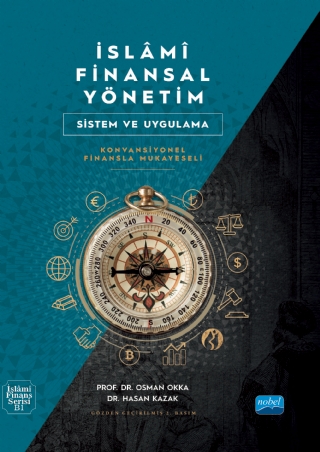
Today, due to the rapid development of the Islamic finance sector and the fact that Islamic funds are approaching 3 trillion dollars, interest in this field has increased gradually, on the one hand, publications in this field have increased, on the other hand, Islamic financial institutions have become institutionalized to a large extent. While all these developments were taking place, the aspect of Islamic finance towards companies together with institutions operating in money and capital markets - that is, studies on the application of national and international companies to ordinary, collective, commandite, limited, joint-stock and holding companies - remained relatively behind. This book has been prepared to meet this need, covering almost all areas of financial management and in comparison with conventional finance. For this reason, the book has an intermediate upper structure.
In the book, the basic principles of finance related to Islamic finance within the framework of Islamic law are presented to the reader in a systematized manner in a systematic way, in comparison with conventional finance, and it is shown in detail how Islamic finance can be applied in all areas of the activities of companies in real life. Thus, it is aimed for the reader to gain knowledge in a structure that can think financially with a numerical and analytical method and solve the financial problems of the company by producing policies in accordance with Islam. Case studies of Islamic finance in the 22nd chapter, that is, case studies, added a different dimension to the book.
In the book, the basic principles of finance related to Islamic finance within the framework of Islamic law are presented to the reader in a systematized manner in a systematic way, in comparison with conventional finance, and it is shown in detail how Islamic finance can be applied in all areas of the activities of companies in real life. Thus, it is aimed for the reader to gain knowledge in a structure that can think financially with a numerical and analytical method and solve the financial problems of the company by producing policies in accordance with Islam. Case studies of Islamic finance in the 22nd chapter, that is, case studies, added a different dimension to the book.
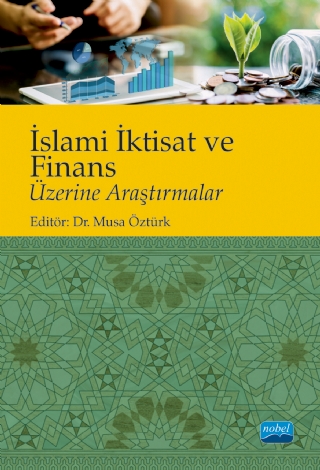
The problems we face today, where perhaps the fastest transformations in the history of humanity are experienced, trigger the search for a new normal, system and order in order to protect the current gains and to ensure an inclusive and sustainable growth and development process. These searches, which take place in almost every field, especially in socioeconomic and political fields; re-understanding the old, the re-discovery of the new, and the examination of the interaction between the old and the new. From an economic point of view as a result of these searches, discussions on the new economic system are being mobilized, and the problems of what will replace the old systems, how the new order will function, and how to define the roles of these new normally known economic actors are questioned -objectively and normatively. One of the efforts made in this context is the studies carried out within the scope of Islamic Economics and Finance, which is the richest in terms of experience, originality and consistency, and the impact/repercussion of these studies is increasing and expanding day by day across the world.
In order to support this effect/echo, this book, which was initiated by using the blind arbitrator process, begins by examining the subject of interest, which functions as litmus paper in terms of economic thought and systems. After the interest topic, there are sections on zakat, the state, solidarity institutions and participation banks, respectively. Within the scope of Islamic Finance; financing models, blockchain technology, behavioral finance and investment attorneyship are examined, followed by applied studies on the economy-finance relationship. Thus, it has been tried to contribute to the efforts of humanity in general and Turkey in particular to get rid of the systematic bottlenecks and deadlocks, and to the aims of understanding the old, discovering the new and examining the old-new interaction within the scope of Islamic Economics and Finance.
In order to support this effect/echo, this book, which was initiated by using the blind arbitrator process, begins by examining the subject of interest, which functions as litmus paper in terms of economic thought and systems. After the interest topic, there are sections on zakat, the state, solidarity institutions and participation banks, respectively. Within the scope of Islamic Finance; financing models, blockchain technology, behavioral finance and investment attorneyship are examined, followed by applied studies on the economy-finance relationship. Thus, it has been tried to contribute to the efforts of humanity in general and Turkey in particular to get rid of the systematic bottlenecks and deadlocks, and to the aims of understanding the old, discovering the new and examining the old-new interaction within the scope of Islamic Economics and Finance.

The latest information and principles, which have gained an international character in the field of contemporary business, are prepared in the book, which has been prepared by carefully evaluating both the developments in the literature and the new practices in the business world in the 2000s, on all subjects within the scope of business administration, from its establishment to its operation, and especially on business economics and management. techniques and strategies have been systematically studied. In particular, the basic subjects and concepts of business, the establishment of the business, management, production, marketing and finance functions are discussed in detail.
This book is suitable for the students of Faculties of Economics and Administrative Sciences, Faculties of Business and Engineering and Vocational Schools, which include courses such as business administration, business economics, business management, management and organization, production, marketing and finance, as well as Engineering faculties who have felt the weight and importance of business in recent years. It is a reference source for students.
This book is suitable for the students of Faculties of Economics and Administrative Sciences, Faculties of Business and Engineering and Vocational Schools, which include courses such as business administration, business economics, business management, management and organization, production, marketing and finance, as well as Engineering faculties who have felt the weight and importance of business in recent years. It is a reference source for students.

Mainly, the problem of underdevelopment and development, which was on the economic, social, cultural and even political agenda of all humanity after the Second World War, naturally led to the emergence of a development literature and to its rapid development over time.
This book covers traditional and contemporary theoretical approaches to development economics and policies that can be followed in practice. In this context, the book covers descriptive and measurement issues related to development and underdevelopment; theories of underdevelopment; capital accumulation and technology problems; financing of development; population, human capital and employment problems; development and foreign trade; resource allocation problem; development and industrialization strategies and finally sustainable development issues are discussed. We believe that our book will be useful not only for our students but also for those who want to acquire basic information on the subject.
This book covers traditional and contemporary theoretical approaches to development economics and policies that can be followed in practice. In this context, the book covers descriptive and measurement issues related to development and underdevelopment; theories of underdevelopment; capital accumulation and technology problems; financing of development; population, human capital and employment problems; development and foreign trade; resource allocation problem; development and industrialization strategies and finally sustainable development issues are discussed. We believe that our book will be useful not only for our students but also for those who want to acquire basic information on the subject.

In this study, it is aimed to explain the basic information about both development and growth economics and economic design, which is the building block of modern development theory. It is thought that some of the information in the study is important in terms of drawing a framework that will allow a better understanding of New Development. In addition, some important information about the content of economics as a concept is also included in the study in the light of the thoughts of Alfred Marshall and John Maynard Keynes.
The contents of the second edition are briefly as follows: In the first chapter, a conceptual introduction has been made. In the second part, some features of underdeveloped countries are explained using current data. The third chapter describes the colonial past of the underdeveloped countries. In the fourth chapter, the differences between the past and present meanings of development economics are explained. At the end of this section, it is once again emphasized that New Development means economic design. In the fifth chapter, development theories and in the sixth chapter basic information about economic design are given. The seventh chapter is on the objective function as an important element of economic design. In this section, microeconomic objectives are explained by matching them with development objectives. In the eighth chapter, Marshallian, Keynesian and ethical origins of economics and development design are presented. In the ninth chapter, after the basic concepts of economic growth are given, in the tenth chapter, the demand constraint in economic growth is explained. In the eleventh chapter, after presenting the difference between growth and catch-up, demand constraint in the catch-up process is explained in the context of middle-income trap. In the twelfth chapter, the role of foreign direct investments in the capture process is shown using Findlay's model. In the last chapter, the problem of infrastructure in development and growth design has been addressed within the framework of transportation.
The contents of the second edition are briefly as follows: In the first chapter, a conceptual introduction has been made. In the second part, some features of underdeveloped countries are explained using current data. The third chapter describes the colonial past of the underdeveloped countries. In the fourth chapter, the differences between the past and present meanings of development economics are explained. At the end of this section, it is once again emphasized that New Development means economic design. In the fifth chapter, development theories and in the sixth chapter basic information about economic design are given. The seventh chapter is on the objective function as an important element of economic design. In this section, microeconomic objectives are explained by matching them with development objectives. In the eighth chapter, Marshallian, Keynesian and ethical origins of economics and development design are presented. In the ninth chapter, after the basic concepts of economic growth are given, in the tenth chapter, the demand constraint in economic growth is explained. In the eleventh chapter, after presenting the difference between growth and catch-up, demand constraint in the catch-up process is explained in the context of middle-income trap. In the twelfth chapter, the role of foreign direct investments in the capture process is shown using Findlay's model. In the last chapter, the problem of infrastructure in development and growth design has been addressed within the framework of transportation.

This work examines the concepts of property, property and market, which are the main subjects of economics, from the perspectives of both Islamic and conventional economics. Goods are the basis of economic life, because goods are the name of the means that meet the needs of people. Man has material and intangible needs. A person pursues them all his life. If his material needs are met, he will be prosperous, and if his intangible needs are met, he will attain happiness. People try to acquire property from the moment they know themselves. The name of owning and owning a property is called property. Property entitles people to that property and provides the right to dispose and use it. This is also called "possession". Normally, people buy the goods by giving their money. The sale process is also done in the bazaar, in the market. The word market, which comes from Italian, is used in the sense of market. The movable goods are both displayed and sold in the bazaars, shops, week markets, stock exchanges, formerly fairs and now fairs. Real estates are bought and sold in the land registry offices of the state.
In this work, the author analyzed the definition and properties of goods, their moral evaluation, the subject of ownership, the ownership of production factors, and the protection of property, both from a secular and Islamic point of view, in his six-part analysis.
In this work, the author analyzed the definition and properties of goods, their moral evaluation, the subject of ownership, the ownership of production factors, and the protection of property, both from a secular and Islamic point of view, in his six-part analysis.

For every economics reader, theoretical as much as possible, experience and practical point of view gained within the framework of obtained observations are a necessity. The authors of the microeconomics book you have, especially in the preface and introduction, explain why their books are different from the current Turkish books taught in the field. In short, a method based on "learning by doing" and providing guidance to the students is followed in the book: The book contains a theoretical integrity that will respond to the demands of undergraduate and graduate students. Topics that complement each other are primarily explained with geometric figures; When necessary, the proof mechanism is given importance with the help of algebra. Solved problems in the content, reading passages, sometimes case studies and chapter suffixes that are compatible with the integrity of the subject are at a level that will meet the expectations of both instructors and students who want to be economics readers. As it is known, the more the theories of microeconomics are internalized, the more successful the entrance exams for the profession. The welfare contribution provided by the success of being a good economics reader is always felt.
While working at Nişantaşı University, Professor Recep KÖK, one of the authors of this textbook, is still working at Dokuz Eylül University (2019), Assoc. Oğuz KARA (Duzce University), Assoc. Dr. Üzeyir AYDIN (Dokuz Eylül University), Dr. Lecturer A. Elif AY YALÇINKAYA (Dokuz Eylül University) has revived the “team spirit” again: Authors have published many books, articles, etc. related to the field. It can be said that KÖK's professional experience of more than forty years is the main factor in bringing this work, which is a reputation of common will and effort, to the publication life. With the contribution of our publishing house, we hope that this privileged book, which has been included in the list of Turkish textbooks published in Turkey, will provide significant support to the teaching of economics! Of course, its readers' evaluations and appreciation of the book are beyond any value.
While working at Nişantaşı University, Professor Recep KÖK, one of the authors of this textbook, is still working at Dokuz Eylül University (2019), Assoc. Oğuz KARA (Duzce University), Assoc. Dr. Üzeyir AYDIN (Dokuz Eylül University), Dr. Lecturer A. Elif AY YALÇINKAYA (Dokuz Eylül University) has revived the “team spirit” again: Authors have published many books, articles, etc. related to the field. It can be said that KÖK's professional experience of more than forty years is the main factor in bringing this work, which is a reputation of common will and effort, to the publication life. With the contribution of our publishing house, we hope that this privileged book, which has been included in the list of Turkish textbooks published in Turkey, will provide significant support to the teaching of economics! Of course, its readers' evaluations and appreciation of the book are beyond any value.

In this book, the changing economic financial conditions in the Ottoman Empire after the declaration of the Tanzimat Ferman, both in terms of its content and social, legal and economic influence, were shaped around the idea of establishing a bank, which was one of the new practices for that period. As a matter of fact, the idea of 'establishing a state bank' for the Ottomans and the dynamics and intellectual infrastructure of its implementation is an important economic history event that needs to be examined.
This book in your hand examines the organizational characteristics of Dersaadet Bank, the first example of the Ottoman banking activities started in the second half of the 19th century, and the economic conditions of the period in which it started to operate, as well as the financial and commercial dimensions of its mission, with the help of Ottoman archive sources. This study has tried to show how the trade and business networks of the Tanzimat Period were shaped through financial markets, the nature of the entrepreneurial networks owned by the partnerships of merchants and bankers, and what features they contain in this sense, through the records of Dersaadet Bankası. This book, which can be considered as an essay on the purpose of the bank's establishment, the close relationship of the policy transactions it carried out with foreign trade and the Ottoman monetary system, and the revealing of the Ottoman entrepreneurial business networks through this experience, gives the reader a thematic overview of the 'Ottoman History of Economics, Business and Finance' literature. offers pain.
This book in your hand examines the organizational characteristics of Dersaadet Bank, the first example of the Ottoman banking activities started in the second half of the 19th century, and the economic conditions of the period in which it started to operate, as well as the financial and commercial dimensions of its mission, with the help of Ottoman archive sources. This study has tried to show how the trade and business networks of the Tanzimat Period were shaped through financial markets, the nature of the entrepreneurial networks owned by the partnerships of merchants and bankers, and what features they contain in this sense, through the records of Dersaadet Bankası. This book, which can be considered as an essay on the purpose of the bank's establishment, the close relationship of the policy transactions it carried out with foreign trade and the Ottoman monetary system, and the revealing of the Ottoman entrepreneurial business networks through this experience, gives the reader a thematic overview of the 'Ottoman History of Economics, Business and Finance' literature. offers pain.

In this sixth book of the Pocket Books series, which aims to deal with the basic institutions and issues of Islamic economics in a content that can be easily understood by people of all levels, rather than a theoretical depth; The issue of saving, which has not received the attention of Islamic economics researchers, has been handled not only from an economic point of view, but also from a multifaceted perspective in terms of social, legal, moral and cultural aspects.
Despite its small volume, the work reveals the current state of Islamic economic studies through the concept of savings, and invites the reader to a modest search for the political economy of Islam from the crossroads of thought on the question of how the savings phenomenon can be shaped in Islamic economy.
Despite its small volume, the work reveals the current state of Islamic economic studies through the concept of savings, and invites the reader to a modest search for the political economy of Islam from the crossroads of thought on the question of how the savings phenomenon can be shaped in Islamic economy.

In Turkish Financial Reporting Standards and International Financial Reporting Standards (TFRS/IFRS), related to financial instruments; There are 4 (four) standards: TMS/UMS 32: Financial Instruments: Presentation, TMS/UMS:39 Financial Instruments: Recognition and Measurement, TFRS/IFRS 7: Financial Instruments: Disclosures, TFRS/IFRS 9: Financial Instruments standards.
In the study, the principles of presentation with TAS / IAS 32, accounting (reporting) and valuation principles with TMS / IAS 39, and public disclosure principles with TFRS / IFRS 7 are examined with examples and contributed to the implementation of financial instruments in an impartial and effective manner. intended to be.
In line with these purposes; Definition, presentation, classification, valuation (measurement) of financial instruments, footnote explanations, reporting of derivative financial instruments and hedge accounting are tried to be explained with examples.
In the study, the principles of presentation with TAS / IAS 32, accounting (reporting) and valuation principles with TMS / IAS 39, and public disclosure principles with TFRS / IFRS 7 are examined with examples and contributed to the implementation of financial instruments in an impartial and effective manner. intended to be.
In line with these purposes; Definition, presentation, classification, valuation (measurement) of financial instruments, footnote explanations, reporting of derivative financial instruments and hedge accounting are tried to be explained with examples.

Indirect or intermediary financing plays a vital role in today's contemporary financial systems. Even in directly financed markets, it is often not possible for market participants to trade individually and they need to get services from specialized financial intermediaries. Thus, the roles and activities of financial intermediaries have increased more than ever before. It is well known to those who are familiar with the subject that banks have always had a very important place among financial intermediaries. It is also well known that commercial banks or deposit banks play a dominant role among the types of banks such as investment banks, development banks or participation banks.
It is observed that commercial banks, which are the leading players of bank-based financial systems, are increasingly dominating market-based financial systems. Although investment banks have a significant weight in market-based systems, it is seen that commercial banks have increasingly penetrated into this area in the last two decades, with the effect of financial liberalization trends. The same trend is strongly felt in other areas of finance, particularly in the insurance sector, with practices such as bancassurance.
One of the most important reasons why commercial banks are in a superior position even in different types of financial systems is that they turn into supermarkets of financial products and services over time, suppressing other types of intermediation in the system by using their space and economies of scale advantages. Today, customers who demand financial products and services go to meet all their needs through commercial banks, as they save a lot of time and money. Indeed, with their widespread branch networks, internet branches, advanced technology-based applications such as mobile and telephone banking, commercial banks can serve their customers on a 24/7 basis, almost anywhere.
This book covers the basic principles and theories of the management of commercial banks, which have a central role in today's contemporary financial systems and have now become almost the dominant type of intermediation. Within the scope of financial management principles of banks; Topics such as the management of the bank firm and its branches, the fund raising and utilization strategies of banks, pricing and marketing strategies specific to banks are covered. Written at undergraduate and graduate levels, the book is a resource that can be easily used at the associate degree level, ignoring some technical issues. In addition, we believe that the book will be useful in providing a general vision to readers who are interested in banking or who are just starting out in this profession.
It is observed that commercial banks, which are the leading players of bank-based financial systems, are increasingly dominating market-based financial systems. Although investment banks have a significant weight in market-based systems, it is seen that commercial banks have increasingly penetrated into this area in the last two decades, with the effect of financial liberalization trends. The same trend is strongly felt in other areas of finance, particularly in the insurance sector, with practices such as bancassurance.
One of the most important reasons why commercial banks are in a superior position even in different types of financial systems is that they turn into supermarkets of financial products and services over time, suppressing other types of intermediation in the system by using their space and economies of scale advantages. Today, customers who demand financial products and services go to meet all their needs through commercial banks, as they save a lot of time and money. Indeed, with their widespread branch networks, internet branches, advanced technology-based applications such as mobile and telephone banking, commercial banks can serve their customers on a 24/7 basis, almost anywhere.
This book covers the basic principles and theories of the management of commercial banks, which have a central role in today's contemporary financial systems and have now become almost the dominant type of intermediation. Within the scope of financial management principles of banks; Topics such as the management of the bank firm and its branches, the fund raising and utilization strategies of banks, pricing and marketing strategies specific to banks are covered. Written at undergraduate and graduate levels, the book is a resource that can be easily used at the associate degree level, ignoring some technical issues. In addition, we believe that the book will be useful in providing a general vision to readers who are interested in banking or who are just starting out in this profession.

Traditional social, economic and cultural values in Turkish society are trying to catch up with the speed of the new world. The effort of neo-classical economics to transform social sciences into natural sciences causes the ties between economics, human and society to be broken. The greater dominance of the 'economic' over the 'social' increases the distances between the economy and society. Economic sociology, on the other hand, looks at economic events from a sociological perspective and takes multidisciplinary approaches instead of uniform approaches. Economic sociology both looks at individual parts and tries to understand and make sense of the whole.
Suggesting a standard economic system and policy for each country is a rather limited approach. So much so that trying to solve the economic problems of a country without understanding the people, society, culture and history is like writing on water. The fact that each country's economic problems are unique brings to mind the views of Hippocrates, the founder of medicine. Hippocrates says that each patient is special and that there can be no standard treatment. As in the famous aphorism "There is no disease, there is a patient". Economic sociology is also in an effort to understand people and society by moving from historical facts. At the same time, it aims to solve economic problems by seeing and knowing the reality of each country in terms of social and economic structures.
In this study, titled "Economic Sociology in Turkey", it is explained from the perspective of different economic sociologists how economic thought formed in Turkey in the historical process and what kind of effects moral values have on the economic structure. For this purpose, the views of different thinkers, from Ziya Gökalp to Sabri Ülgener, from Fahri Fındıkoğlu to Cavit Orhan Tütengil and from Mehmet Eröz to Amiran Kurtkan Bilgiseven, are presented as thinkers who directly or indirectly contribute to the sociology of economics in Turkey. At the same time, state-centered critical approaches to solving recent social and economic problems, culture-centered Weberian approaches investigating the effects of religious and moral approaches on economic processes, capital-centered critical approaches and new economic sociology approaches are explained. One of the most important ways to reduce the distances between economy and society is to be able to take a holistic view of the social and economic problems caused by rapid liberalization in Turkey since the 1990s.
Suggesting a standard economic system and policy for each country is a rather limited approach. So much so that trying to solve the economic problems of a country without understanding the people, society, culture and history is like writing on water. The fact that each country's economic problems are unique brings to mind the views of Hippocrates, the founder of medicine. Hippocrates says that each patient is special and that there can be no standard treatment. As in the famous aphorism "There is no disease, there is a patient". Economic sociology is also in an effort to understand people and society by moving from historical facts. At the same time, it aims to solve economic problems by seeing and knowing the reality of each country in terms of social and economic structures.
In this study, titled "Economic Sociology in Turkey", it is explained from the perspective of different economic sociologists how economic thought formed in Turkey in the historical process and what kind of effects moral values have on the economic structure. For this purpose, the views of different thinkers, from Ziya Gökalp to Sabri Ülgener, from Fahri Fındıkoğlu to Cavit Orhan Tütengil and from Mehmet Eröz to Amiran Kurtkan Bilgiseven, are presented as thinkers who directly or indirectly contribute to the sociology of economics in Turkey. At the same time, state-centered critical approaches to solving recent social and economic problems, culture-centered Weberian approaches investigating the effects of religious and moral approaches on economic processes, capital-centered critical approaches and new economic sociology approaches are explained. One of the most important ways to reduce the distances between economy and society is to be able to take a holistic view of the social and economic problems caused by rapid liberalization in Turkey since the 1990s.

“The fundamental problem of humanity is to combine three variables: economic efficiency, social justice and individual freedom.” John Maynard Keynes (1883-1946)
If man realizes these three variables on a universal level, he will overcome other problems.
economics; It is a tool that helps to solve these problems both nationally and internationally. Increasing economic efficiency, ensuring human rights and freedoms and social justice are the basic components of the ideal society that is frequently mentioned in the post-Cold War world conjuncture, but relatively realized. Keynes said, “Markets are driven by animal instincts, not by logic.” As he says in his statement, actors in the field of economics go wild on stage.
For this reason, the fact that the rulers of countries, experts and academics have deep knowledge about economics turns crises into opportunities in issues that are closely related to social welfare such as unemployment, inflation, growth, productivity and foreign trade.
If man realizes these three variables on a universal level, he will overcome other problems.
economics; It is a tool that helps to solve these problems both nationally and internationally. Increasing economic efficiency, ensuring human rights and freedoms and social justice are the basic components of the ideal society that is frequently mentioned in the post-Cold War world conjuncture, but relatively realized. Keynes said, “Markets are driven by animal instincts, not by logic.” As he says in his statement, actors in the field of economics go wild on stage.
For this reason, the fact that the rulers of countries, experts and academics have deep knowledge about economics turns crises into opportunities in issues that are closely related to social welfare such as unemployment, inflation, growth, productivity and foreign trade.

With globalization, foreign trade and international capital mobility between countries are increasing. Interest in international trade and capital mobility is increasing in universities and the scientific world, and new academic researches are constantly being conducted on these subjects. The increasing competition between countries and companies in international markets also supports the increase in interest in international economics. The importance of international trade and capital movements in terms of achieving sustainable development and economic growth targets also affects policy makers. It is seen that Turkey also increased its foreign trade in the 2000s, and foreign direct capital and portfolio investments in Turkey increased. It is thought that international trade and capital movements will increase gradually in the 21st century and that these issues will continue to be important for academia and policy makers.
This book has been written considering the importance of international economics for Turkey and the world. The importance of international trade for Turkey to achieve its 2023 and 2053 targets will also attract the attention of the readers. In the book; importance of international economy, foreign trade theories, macroeconomic balance, foreign exchange markets, balance of payments, tariff and non-tariff barriers, liberalization trends in foreign trade, EU and economic groups, historical development of Turkey's foreign trade, Bretton Woods system, IMF and World Bank , international labor flows and development problems are included. The target audience of the book is those who have not studied economics but want to increase their knowledge on international economics. In addition, university students taking economics courses will also be able to benefit from the book. Thanks to this work, readers will have a good grasp of the basic issues related to international economics and will reach a level where they can follow publications and media on international economics.
This book has been written considering the importance of international economics for Turkey and the world. The importance of international trade for Turkey to achieve its 2023 and 2053 targets will also attract the attention of the readers. In the book; importance of international economy, foreign trade theories, macroeconomic balance, foreign exchange markets, balance of payments, tariff and non-tariff barriers, liberalization trends in foreign trade, EU and economic groups, historical development of Turkey's foreign trade, Bretton Woods system, IMF and World Bank , international labor flows and development problems are included. The target audience of the book is those who have not studied economics but want to increase their knowledge on international economics. In addition, university students taking economics courses will also be able to benefit from the book. Thanks to this work, readers will have a good grasp of the basic issues related to international economics and will reach a level where they can follow publications and media on international economics.

When we look at the world in general, not only conventional banks but also interest-free banks finance international (foreign) trade. Conventional banks can finance all kinds of legal goods or services with interest. Interest-free banks, on the other hand, can only mediate for goods that are halal to trade while financing international trade, and they can provide financing to international traders only with interest-free financing products. This book in your hand focuses on various interest-free financing products of interest-free banks and which interest-free financing products can support international traders. Thanks to this book, the reader will have the opportunity to learn about the development of international trade in our nearby geography, to get to know the interest-free institutions that support international trade, the types of contracts used in interest-free financing, and the current interest-free international trade finance products that have applications around the world.
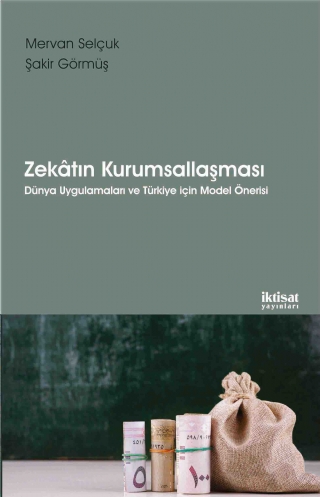
The connection of Muslims with zakat has decreased day by day and has almost reached the breaking point. It is seen that there is a decrease in the number of people who calculate zakat in accordance with its originality and deliver it to those who deserve it. While the zakat potential of Islamic countries can easily eliminate the problems of income distribution and poverty, the insufficient institutionalization of zakat causes many socio-economic problems and an inability to effectively combat existing problems. Hz. Although it cannot be collected and distributed under the authority of the state and forcibly, as in the Sunnah of the Prophet (pbuh), it is seen that zakat is tried to be implemented in an institutional structure with state support in countries such as Malaysia, Indonesia and Pakistan. In this study, information about the countries where zakat is applied in an institutional structure is given and these zakat institutions are examined comparatively. In the light of this information, taking into account the existing legal and institutional structures, a model has been created for a modernly applicable zakat institution in Turkey.
